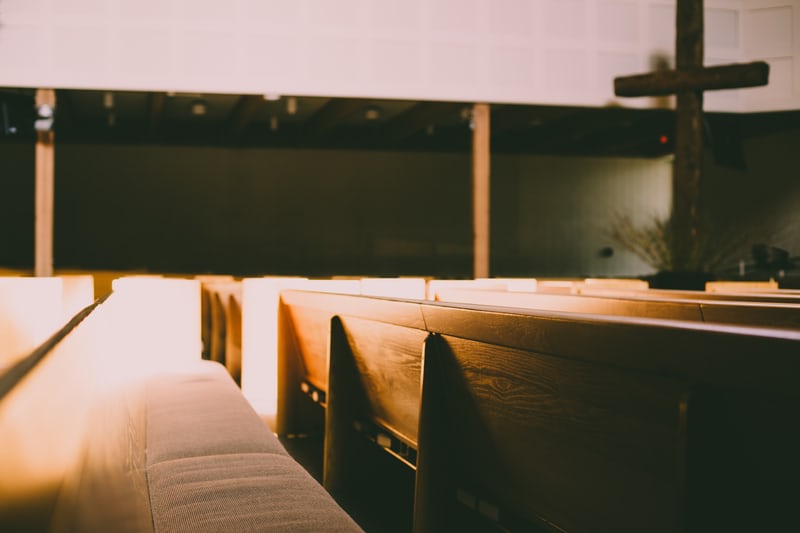The morning after: Spiritual realities of the “Circuit Breaker”
Emilyn Tan // April 5, 2020, 7:52 pm

Circuit breaker realities made easier: "Life would be more miserable and more unbearable in times of crisis and physical isolation if we did not have new media to keep us all connected and to keep our spirits high," notes Rev Dr Daniel Koh. Photo by Claudio Schwarz | @purzlbaum on Unsplash.
The morning after Prime Minister Lee Hsien Loong’s address to the nation on Friday, April 3, I woke up to sombre words from Oswald Chambers (1874-1917).
His My Utmost for His Highest devotional, compiled in 1935, remains ageless to me, and on April 4, spoke volumes in a reading based on John 16:32: “Indeed the hour is coming … that you be scattered.”
An excerpt: “Jesus was not rebuking the disciples in this passage. Their faith was real, but it was disordered and unfocused, and was not at work in the important realities of life. The disciples were scattered to their own concerns and they had interests apart from Jesus Christ.
“After we have the perfect relationship with God, through the sanctifying work of the Holy Spirit, our faith must be exercised in the realities of everyday life.
“We will be scattered … into the emptiness of our lives where we see ruin and barrenness, to know what internal death to God’s blessings means.
“Are we prepared for this? It is certainly not of our own choosing, but God engineers our circumstances to take us there.”
I could not help but reflect on faith being exercised in the realities of this next month of circuit breaker life – a month that could well be extended, for the matter of life and death – and sought out Rev Dr Daniel Koh Kah Soon for wise counsel, a shepherd to my restless soul, who was held captive by an official Stay Home Notice.
“Coronavirus or not, the precepts laid down for our Christian life stand,” I texted. “It would not do well for any of us to be among the sheep that scatter, nor for the Church to stand by and do nothing as it happens.”
Salt&Light What is the way forward, towards the “unyielding spiritual fortitude” (as Chambers put it) that we need?
Rev Koh The idea of “circuit breaker” is a clever choice. It indicates the seriousness of the situation and what the government has put in place to ensure there is no total collapse of services, economy and community life.
Circuit breakers help us to identify points of weakness and faulty practice, policies and behaviour. The government has chosen a metaphor to assure us that they are in control.
“We need a reality check. The current COVID-19 situation is the amplifier used by God to remind us of our finiteness and vulnerability.”
Christians, like any ordinary citizen, should feel a sense of calm assurance without forgetting that something can still go terribly wrong.
The whole system may still collapse if the circuit breaker trips and we are overwhelmed by a complete blackout.
So yes, there is always a threat of “ruin and barrenness” in our world. Perhaps, human beings have taken for granted that while this world is created by God, it is inhabited by sinners. And Christians might have forgotten that our world is a fallen world. They might have been seduced by the false promises of “progress”.
We need a reality check. The current COVID-19 situation is the amplifier (to borrow a metaphor used by CS Lewis) used by God to remind us of our finiteness and vulnerability.
The circuit breaker is a sign that God has not forsaken us in this time of crisis.
Salt&Light Jesus builds His Church on the rock of faith, and the promise is: “the gates of hell shall not prevail against it” (Matthew 16:18). But what does the command to bear fruit look like for the Church in such a time as this?
Rev Koh When we are forced to “scatter”, when we do not have a building in which to assemble, to “do” church, we should reclaim the biblical teaching that the Church is not a building but the people of God.
We are the Church, and as People of God, there are certain things expected of us: The fruit of the Spirit (Galatians 5:22-23) should mark us out as Christians. (We may want to look at the teaching of Paul to see if we have evidence of such fruit.)
“The sanctifying grace of God transforms us and enables us to bear the fruit that identifies us as followers of Christ.”
The thing is, Christians should not stagnate in our spiritual life. The sanctifying grace of God transforms us (2 Corinthians 3:18) and enables us to bear the fruit that identifies us as followers of Christ.
In this time of crisis, the evidence of fruit-bearing will be seen, for example, in how we extend care for people who are struggling to cope with fear, with uncertainties, with possibilities of loss of job, not to mention being infected by this scary coronavirus.
Our fruit will be shown when we refuse to be self-centred and be more self-giving; when we are less demanding of service and more prepared to lend a hand to serve; when we ask how else we can reach out to the lonely, the elderly and people who are generally overlooked.
Times may be tough. But tough times can show up who we really are. And if we are Christians, there must be clear, unambiguous evidence of some aspects of the fruit of the Spirit.
Salt&Light What does shepherding look like when you have to meet via Skype? Does discipleship and nurture still happen in the vein of “the good shepherd giveth His life for the sheep” (John 10:11b)? What about the Great Commission (Matthew 28:18-20): Where could we “go”?
Shepherding from pastors and cell leaders will continue. We cannot leave the flock under our care to be on their own. That would be to betray our calling as shepherds – 1 Peter 5:2-4 is a good reminder.
Changing social conditions will mean that our approach to pastoral care must change. We need to adapt. We cannot go against the restrictions imposed by the government which seek to protect us and prevent the spread of the virus.
“When we care, when we offer help to others, regardless of race and religion, we are also doing evangelism.”
So, we have to use media which we might not be familiar with to connect with people and to communicate our love and care.
When we care, when we offer help to others, regardless of race and religion, we are also doing evangelism. This is, in a way, being the salt and light (Matthew 5:13-16) in our world. And it is through our good works that we point others to God.
The social media will increasingly be used to tell stories of Jesus and His love. Thankfully, we have such media available now for pastoral care, social networking, social outreach and evangelistic messages.
Life would be more miserable and more unbearable in times of crisis and physical isolation, if we did not have the new media to keep us all connected and to keep our spirits high.
Salt&Light What does “abiding” (John 15:4a) in this season look like for the individual? Or will most of us be in limbo, waiting for the next thing to happen or the person next door to initiate something?
Rev Koh This new situation we are in has been very disruptive in more ways than we have anticipated.
“Personal growth will require self-discipline, and yet not self-dependence.”
One area which has been disrupted is the idea of “abiding” or how we have been doing “abiding”.
Personal growth will require self-discipline, and yet not self-dependence. We still need the Holy Spirit guiding us, empowering us and keeping us in our journey of faith.
We need to adopt regular spiritual disciplines: Say our prayers, study the Bible, read good Christian books, fast, etc. I recommend reading Richard Foster’s classic, Celebration of Discipline, as a guide with regard to personal spiritual discipline and growth.
An additional help is to be part of a small group where you can hold each other accountable to your spiritual life and walk with God. You can pray for each other, encourage each other and watch over each other’s well-being. In the current season, our connection has to be via social media.
In Christ we ultimately triumph
Rev Koh Yes, the commandments stand. We need to be vigilant. What must not happen to us is to be distracted by the crisis, forgetting that in Christ we will ultimately triumph (John 16:33).
It will be a tragedy if we desert God and follow the way of scoffers (Psalm 1:1, 4-5).

“When we do not have a building in which to assemble, to ‘do’ church, we should reclaim the biblical teaching that the Church is not a building but the people of God,” reminds Rev Dr Daniel Koh. Photo by Gregory Hayes on Unsplash.
Holy Week captures for us the drama of God’s redemptive work for the salvation of the world.
It also shows us that sometimes we cannot avoid deep crisis.
“Holy Week captures for us the drama of God’s redemptive work for the salvation of the world.”
Jesus had to face Calvary. He did not walk away when He could have done so by heading somewhere else instead of entering Jerusalem.
From the perspective of 2020, we have the privilege of knowing that, in the end, the cross and the tomb could not hold Him. He overcame the darkest crisis anyone can imagine, and showed us that there is a bright future when we place our hope in Him.
There will be people who will abandon God. But for us, we shall place our faith in God who has revealed Himself and His love to us in and through Jesus.
Rev Daniel Rev Dr Koh Kah Soon serves on the Board of Governance of Methodist Welfare Services and is a pastor at Barker Road Methodist Church. He is a retired lecturer in Ethics and Pastoral Theology at Trinity Theological College, and is passionate about Christian social outreach and how we may apply our Christian faith to the issues of our time.
Churches’ Easter celebrations to continue amidst “circuit breaker” measures
Home away from Home: Churches and charities express God’s love to stranded Malaysian workers
We are an independent, non-profit organisation that relies on the generosity of our readers, such as yourself, to continue serving the kingdom. Every dollar donated goes directly back into our editorial coverage.
Would you consider partnering with us in our kingdom work by supporting us financially, either as a one-off donation, or a recurring pledge?
Support Salt&Light



